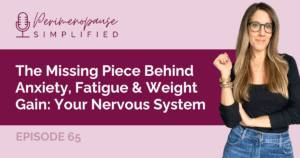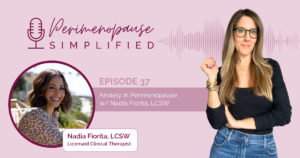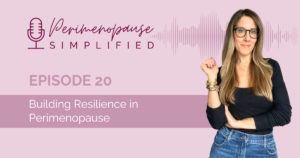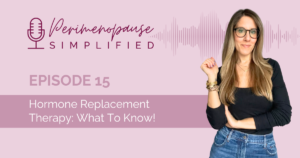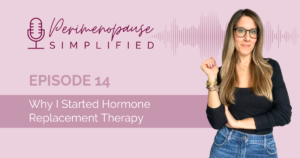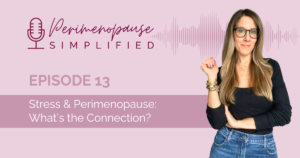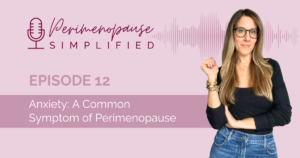65. The Missing Piece Behind Anxiety, Fatigue & Weight Gain: Your Nervous System
If you’re feeling anxious, exhausted, gaining weight, and like nothing is working anymore, this episode is for you. These symptoms aren’t just about hormones; they’re often signs of a dysregulated nervous system. In this episode, Functional Health & Integrative Nutrition Coach Claudia Petrilli, breaks down how your nervous system impacts hormones, metabolism, sleep, mood, and more during perimenopause.

